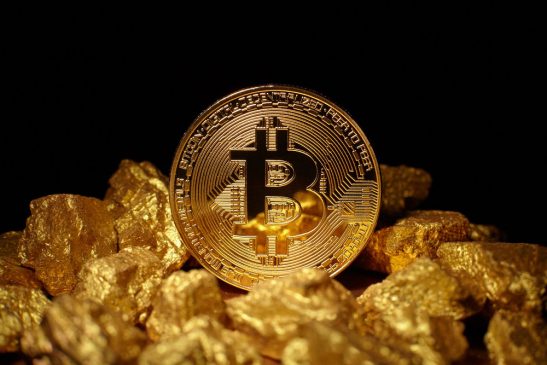According to a new paper published in a peer-reviewed scientific journal, researchers in China have made a groundbreaking discovery that could profoundly impact the face of the precious metals landscape — and provide bitcoin with an opportunity to shine.
Scientists Turn Copper into Substance ‘Almost Identical’ to Gold
Per SCMP, a team of scientists at the Dalian Institute of Chemical Physics at the Chinese Academy of Sciences in Liaoning have developed a method to turn cheap, plentiful copper into a substance that is “almost identical” to gold, accomplishing what alchemists have for hundreds of years believed could be a gateway to endless riches.
Lest anyone protest that this sounds like something out of the National Enquirer or one of the more fantastical medieval travel narratives, the study was published in the peer-reviewed journal Science Advances, and the methodology relies on chemical reactions rather than secret incantations.
To create the pseudo-gold, the scientists shot a payload of hot, electrically-charged argon gas at a target made out of copper. The ionized gas particles dislodged copper atoms from the target, and these atoms fell onto a collecting device where they cooled off into a pile of microscopic sand — each grain just a few nanometers in size.
The scientists then tested the properties of these copper particles by using them as a catalyst in a chemical reaction to turn coal into alcohol. Confirming their research, they found that the nanoparticles “achieved catalytic performance extremely similar to that of gold or silver,” Sun and the other researchers wrote, explaining that it can resist high temperatures, oxidization, and erosion much better than standard copper.
Will Bitcoin Replace Gold as Store of Value?

This scientific development raises the question of whether the gold standard of economic hedging could soon lose its luster, forcing gold bugs and other stock market bears to turn to alternative assets. Could this give bitcoin an opening to become a mainstream store of value?
Though proponents frequently cite bitcoin’s utility as a successor to the yellow metal, the answer remains no, at least for the foreseeable future.
Sun and the other researchers explained that, at least in its current incarnation, the process could not practically be used to create counterfeit gold coins or bars since its density remains the same as normal copper.
Nevertheless, anticipating future improvements in the methodology, ordinary retail investors who purchase precious metals for speculative purposes could be taken in by this pseudo-gold if significant quantities ever exit the industrial sector and are repurposed by counterfeiters. This would exacerbate a longstanding problem in precious metals investing, potentially weakening consumer trust in bullion as a store of value.
Moreover, even the production of this pseudo-gold for its intended purpose — industrial applications — could have a significant impact on the value of the true yellow metal. While the vast majority of gold demand is speculative, the material also plays an important role in the production of electronic devices, a fact that crypto skeptics often cite when objecting to the thesis that bitcoin is “digital gold.”
At the very least, the material’s replacement in industrial manufacturing should place equivalent downward pressure on the gold price, though it’s likely that psychological factors would further weaken investor confidence and steepen the asset’s decline.
Consequently, this and other new threats to gold demand, coupled with future improvements in cryptocurrency adoption and technological development, could over the long term provide a gateway toward bitcoin finally becoming a real store of value rather than just a moonshot purchase.
Featured Image from Shutterstock. Charts from TradingView.
Get Exclusive Crypto Analysis by Professional Traders and Investors on Hacked.com. Sign up now and get the first month for free. Click here.




